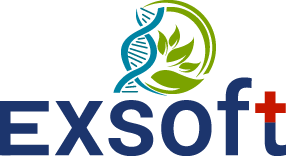
Medlab Clinical currently has two cannabis-based drugs, namely NanaBidial™ and NanaBis™ that contain formulations of cannabidiol (CBD) and tetrahydrocannabinol (THC).
Australia’s scientific research company, Medlab Clinical Ltd. has recently entered into a collaborative agreement with Chronic Pain Australia to promote the knowledge of medicinal cannabis to doctors, patients and to people living with chronic pain and their relevant healthcare providers.
Speaking on the move, Dr. Sean Hall, Chief Executive Officer, Medlab Clinical, said that the company is openly welcoming its alliance with Chronic Pain Australia. He said that Medlab understands that pain management has to extend beyond opioids, its derivatives, and lifestyle management; newer therapies such as NanaBis™ can link to more options, and, by making partnerships, the company can work on better patient outcomes.
For the record, Chronic Pain Australia is a not-for-profit consumer-lead organization dedicated to reducing social and health barriers faced by people suffering from chronic pain. It supports over 35,000 people living with chronic pain each month and has collaborated with the Faculty of Pain Medicine (FPM) and the Australian Pain Society to develop the country’s first National Pain Strategy.
Notably, Medlab is a medical research and development (R&D) facility researching and formulating new biotherapeutics, such as nutraceuticals and pharmaceuticals, to improve health results in early to moderate stage chronic diseases like chronic kidney disease and pre-diabetes/obesity.
According to reliable reports, Medlabs has two cannabis-based medicines, NanaBidial™ and NanaBis™, which contain formulations of cannabidiol (CBD) and tetrahydrocannabinol (THC). The firm’s NanaBis™ drug has a 1:1 ratio of CBD: THC while NanaBidial™ has an 18:2 ratio of CBD: THC. Moreover, NanaBis™ is currently in a clinical trial at Royal North Shore Hospital.
Sources cite that both medicines are currently available to Australian patients for compassionate use under the government’s Special Access Scheme (SAS).

